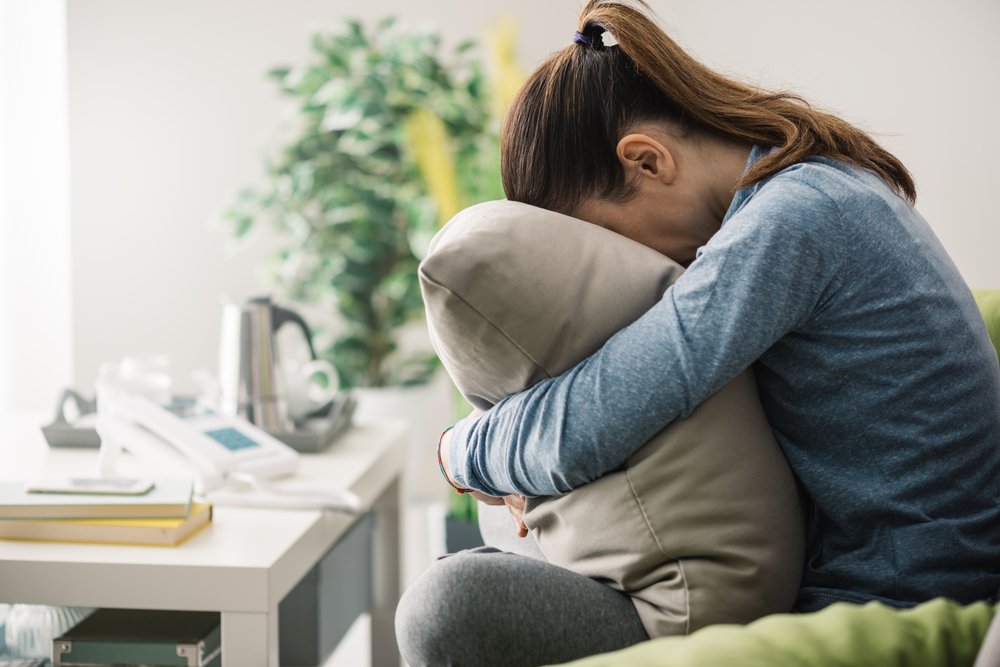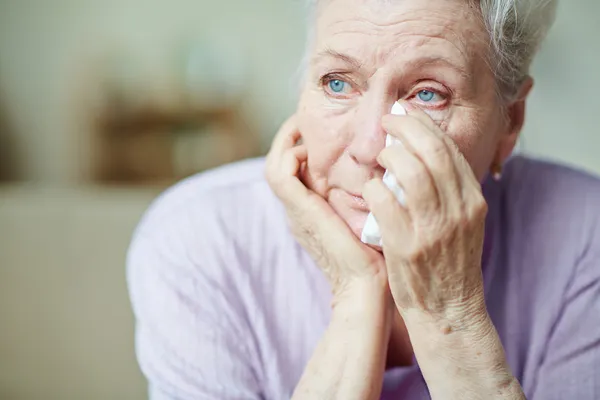Grief can come in many forms—a breakup in a relationship, a dead pet, or the loss of a close family member. Different situations can impact people in various ways, and it’s important to remember that allowing yourself to grieve is a healthy part of healing.
However, when the grieving extends from days into weeks or even months, it may be time to consider trying to move past it so you can continue life as usual. Here are 12 ways to identify if grieving has gone too far, and some strategies for coping…
Scale Back Your Obligations Temporarily
WebMD says that you should allow yourself some time and space to process what you’re grieving about, and that means ensuring you’re not being overworked—which is not ideal at the best of times.
You should have time to express how you really feel to yourself, which is tough to do if there are many expectations still placed on you. Take some vacation time or even sick leave as a way to let yourself truly absorb and process what has happened.
Cry It Out (If You Want)
While not all people shed tears from grief, “Crying is an important part of the grieving process for many people,” notes the Mayo Clinic. If you feel tears trying to fight their way out, you don’t have to hold back. If you do feel like crying but can’t seem to let yourself achieve this, perhaps a visit to a grief counselor is in order.
On the flipside, don’t worry if you don’t feel the need to cry, adds the clinic. Every person grieves in his or her own way, and that may not include tears. Just remember that keeping it all in may lead to mental health troubles down the road.
Avoid Self-Medicating
Many people turn to drugs and alcohol when they are dealing with a tough loss to numb the pain and disconnect from reality, which is considered an unhealthy way to handle the situation, explains Livestrong.com.
The website says if you drink “heavily” up to three or more times per week, you may want to seek professional help and even enter a detox program. But it doesn’t have to get to that point; staying connected to people is a big way to avoid drowning your sorrows alone, notes Livestrong.
Short-Term Medications May Help
While you shouldn’t turn to drug and alcohol abuse to curb how you’re feeling, you can consult your physician about using medication for a short period of time, notes the Mayo Clinic.
Antidepressants are one way to help you level off your emotions, but another symptom of grief can be insomnia—in this case, a prescription sedative can help you get the important rest you need. These medications should only be to help in the initial stages of grief, not as a long-term strategy.
Find a Support Group
While you may want to be on your own in the early stages of your grief, and that’s fine, connecting with others going through the same kind of experiences can be a powerful healer. The type of loss you’ve experienced—such as the loss of a loved one—can help you choose the most suitable group, such as a bereavement support group in this example.
If you are a member of a church, you may want to check if they have bereavement or grief counseling available. The type of counseling can also be rooted in your faith if that is an important component for healing to you.
This Too, Shall Pass
One school of thought brought forward by Psychology Today is that you don’t “get over” grieving. The article suggests you should just let time be the healer, without trying to intervene or work through it.
It notes that new and more positive memories will eventually overtake the old ones that are causing you pain, but you “cannot erase emotional memory.” The source notes it’s not about achieving closure, but developing coping strategies for when the grief rears its ugly head.
Write it Down
Writing down your thoughts about a loved one, whether it’s a letter you wanted to send to them, or just some happy memories you can refer to when the pain arises, is a healthy way of expressing how you feel while honoring the person’s life.
WritingAndWellness.com talks about the advantages of writing to cope with difficult life events. It notes that studies have shown that writing about your source of grief can actually improve physical and mental health. “Studies also indicate that writing about dead friends or loved ones, in particular, is a way by which we can maintain a bond with them, helping us cope with their loss,” it adds.
Turn To Family and Friends
Huffington Post reminds you that you can “lean on family” during difficult times, and that includes when you’re grieving. “Your family and friends expect you to be upset and, while they may not know what to do, they do want to be there for you even if it’s just to listen and offer some affection,” it offers.
It says that people who truly care about you will be able to tolerate your emotions and work through the pain, and you won’t have to worry about losing their support. Remember it’s okay to show your kids you’re sad, reminding them that grief is a normal part of life. Also, they may surprise you with their affection.
Rely on Your Faith
Huffington Post says this is an ideal time to rely on your religious affiliations to help you through the challenges of grief (although it’s possible at first that a loss may make you question your faith).
However, the source says even if you no longer follow any particular religion as you did in the past, “this is the time to return to that stronghold in your life and gain solace from spiritual activities.” Many faith organizations offer support in other ways such as support groups focused on dealing with loss, it adds. You may be spiritual in a way that’s not connected to religion – for example, perhaps a walk in nature is your way of affirming your faith. That’s valuable too.
Maintain Sleep and Healthy Diet
Grief can rob you of your appetite as well as much-needed sleep, as the emotional pain of loss can start to affect you in physical ways. However, as the Mayo Clinic points out, it’s important to take care of yourself through the grieving process, or risk further impacting your overall health.
Make sure you get proper sleep (you may need to consult a physician for a short-term sleep aid), and try to eat more than easy-to-prepare microwave dinners (that are often loaded in salt and fats). Oftentimes during a loss, loved ones and friends will offer to bring you nutritious food – take them up on the offer. Make sure you don’t become idle; try to get out for a short walk regularly for fresh air on your own or with a supportive friend.
Take a Time Out For Enjoyment
Instead of cancelling all of your plans or ignoring your hobbies, you can take time out to enjoy life when you get over the initial shock or pain. You may feel guilty that the person that you lost is no longer able to experience the joy of living; but remember, in many cases, that means they’re not suffering, either.
As TheLightBeyond.com notes, “it’s important to take a break from focusing on your grief,” and that means taking time out for enjoyment. That could be as simple as reading a book you’ve been putting off, or returning to your hobby of nature photography.
Count Your Blessings
It may be hard to do at first, but the Chopra Center suggests you should practice being grateful for what you still have as part of the early grieving process. “Even in the toughest of times, there is something for which you can be thankful,” it notes.
Find something to be thankful for, even if it’s simple – for example, it could be a kind word from a stranger, or spotting a pretty bird on your windowsill. Write down the things each day that have brought an ounce of joy to you, it adds. “Gratitude heals at a very deep level.”















